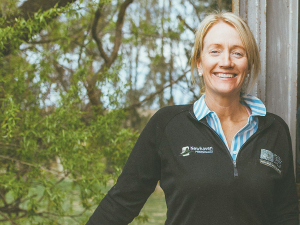North Otago farmer Jane Smith is questioning the modus operandi of AgriZeroNZ - the industry and government partnership working to find a solution to reducing farm methane emissions.
Smith, a founding member of the Methane Science Accord, claims the joint venture between government and agribusiness - including Anzco, Rabobank, Ravensdown, Silver Fern Farms, Synlait, and Fonterra - is "signing cheques that farming can't cash".
"While a focus on global research tools is commendable, the concern is that these companies may have blindly signed up to an expensive tick box in terms of their methane reduction goal," she told Rural News.
"There appears to be no modelling, no scientific rationale behind why and how a 30% methane reduction became their goal. There's no econometric modelling of the implications that such a blunt reduction would have on our livestock sector by 2030."
Smith believes the $165 million programme is a costly investment for taxpayers and the agribusiness involved. She says the real cost to the sector and the economy may be the loss of livestock and a continued 'landslide' of low intensity farms to mass afforestation, if the focus remains on a 30% blanket reduction in the hope that new innovations can be found in such a short timeframe.
"Given that the current suite of research tools are yet to be proven in-field under extensive pastoral conditions that may prove difficult to be scalable and affordable between now and 2030," Smith explains. "What we could be left with is an impractical 30% methane redution goal - with the only option being a mass decrease in livestock numbers."
She adds this would be particularly hitting hard in the sheep, beef and deer sectors - along with low-input dairy systems, regen and organic operations.
AgriZeroNZ partners are adamant they have no interest or involvement in the regulatory space, nor believe that its 30% methane reduction target will influence policy making.
However, Smith questions this and says that its "ambitious" goal could undermine current advocacy work within the sector, aimed at aligning current Climate Change Commission targets with more moderate science-based targets.
"Crucial advocacy work being carried out by Beef + Lamb New Zealand and Federated Farmers is at risk here," she adds.
"This includes a recent study by Oxford University that showed that the current Climate Change Commission reduction targets (10% by 2030 and 24-47% by 2050) would in fact see methane effectively offset all expected additional warming from carbon dioxide and nitrous oxide from the entire New Zealand economy."
The study noted that a 15% of methane reduction by 2050 would see New Zealand methane contribute no additional warming.
"To say that AgriZeroNZ and its 30% by 2030 reduction goal has now wish to unduly influence regulatory policies including methane reduction targets is naïve at best."
Smith suggests that some of the AgriZeroNZ partners may now regret having an unattainable target as their 2030 goal and they should be taking the time to reassess it on behalf of New Zealand farmers and taxpayers.
"If it was my money, I would be asking for a line of sight to a genuine cost/benefit analysis, not just hot air and headlines."



















